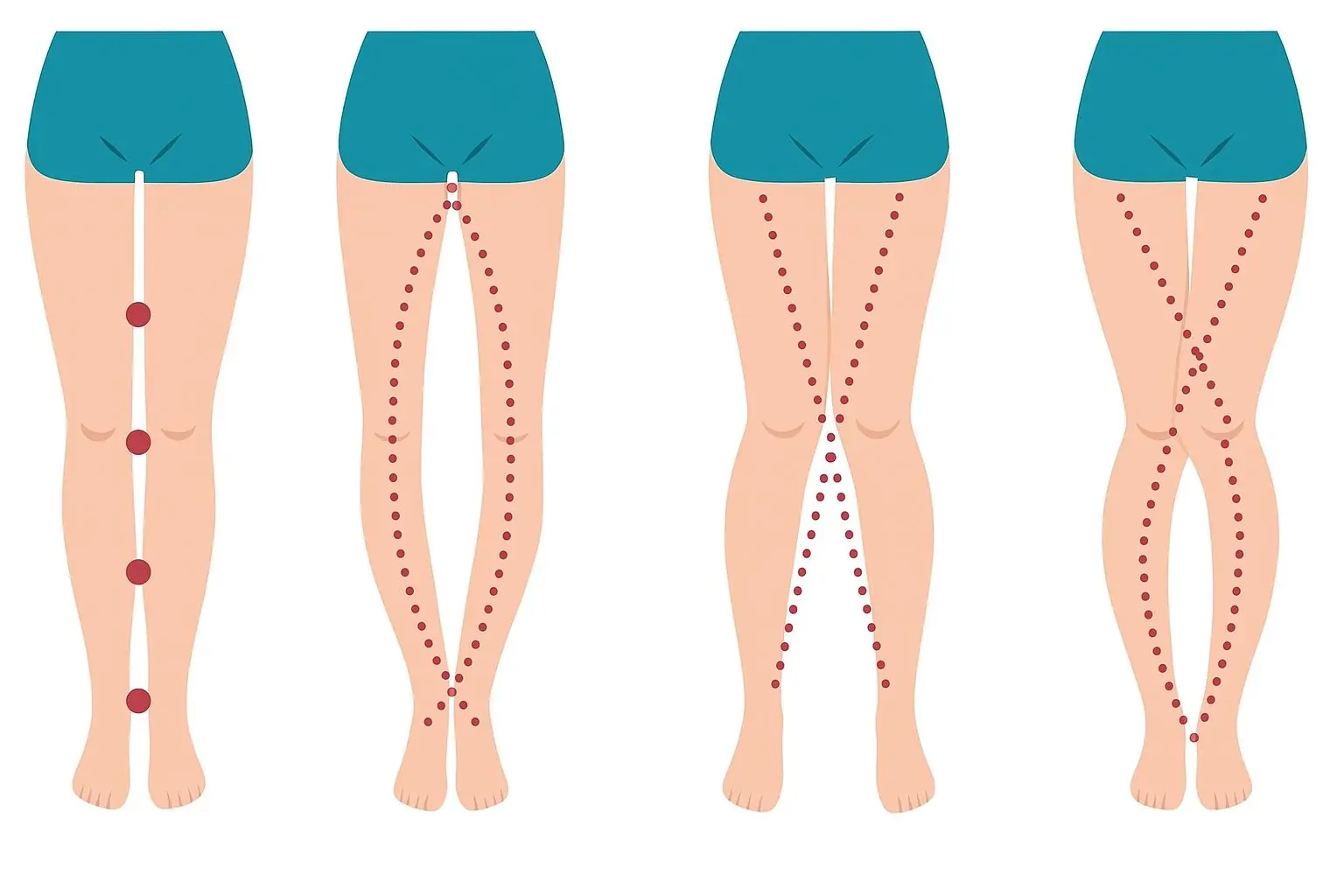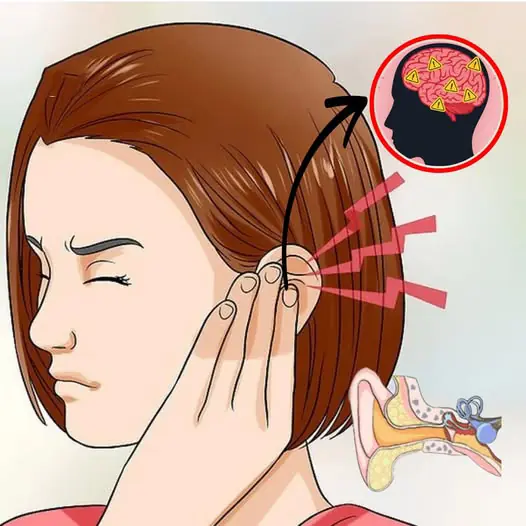
Early Warning Signs of Magnesium Deficiency and What to Do About It
Magnesium is an essential mineral that plays a crucial role in hundreds of bodily functions. Despite its importance, many people unknowingly suffer from magnesium deficiency. The symptoms can range from mild to severe, and if left untreated, they can negatively impact your health. In this article, we'll explore the early warning signs of magnesium deficiency and provide tips on how to replenish your magnesium levels effectively.
1. Muscle Cramps and Spasms One of the most common signs of magnesium deficiency is muscle cramps, twitches, or spasms. Magnesium helps muscles relax, and when you don’t get enough of it, your muscles may contract uncontrollably, leading to painful cramps. This is especially common at night, and many people experience leg cramps while they sleep.
What to Do: If you’re experiencing frequent muscle cramps, consider increasing your magnesium intake through foods like spinach, almonds, and avocados, or talk to your doctor about magnesium supplements.
2. Fatigue and Weakness Feeling unusually tired or weak, even after a good night’s rest, can indicate a magnesium deficiency. Since magnesium is involved in energy production, a lack of it can make it harder for your body to produce the energy you need throughout the day.
What to Do: Ensure you are consuming magnesium-rich foods regularly. If fatigue persists, consult with a healthcare provider to check your magnesium levels and discuss potential supplementation.
3. Irregular Heartbeat Magnesium plays a critical role in maintaining proper heart function. A deficiency can cause irregular heart rhythms (arrhythmia), palpitations, or an increased heart rate. If you experience unexplained heart flutters or your heart seems to skip beats, it may be a sign that your magnesium levels are too low.
What to Do: Consult a healthcare professional immediately if you experience heart palpitations. In addition to medical treatment, eating magnesium-rich foods or taking supplements may help regulate heart function.
4. Anxiety and Mood Swings Magnesium helps regulate neurotransmitters in the brain, which are responsible for mood and emotional well-being. Low magnesium levels have been linked to increased anxiety, irritability, and even depression. If you find yourself feeling unusually anxious or mood swings seem more frequent, magnesium deficiency might be to blame.
What to Do: Incorporate more magnesium-rich foods into your diet, like dark chocolate, nuts, and legumes. If your anxiety or mood swings are affecting your daily life, consider talking to a healthcare professional for advice on magnesium supplements or other treatments.
5. Sleep Problems and Insomnia Magnesium is known for its calming effects and ability to support better sleep. Low magnesium levels can lead to difficulty falling or staying asleep, causing insomnia or restless nights. Magnesium helps regulate the production of melatonin, the hormone that controls your sleep-wake cycle.
What to Do: To improve sleep quality, increase your magnesium intake through foods like bananas, seeds, and leafy greens. You can also consider magnesium supplements or topical magnesium oil to help you relax before bed.
Conclusion: Magnesium is essential for a wide range of bodily functions, and a deficiency can lead to a variety of symptoms that impact your overall health. If you notice any of the early warning signs mentioned above, it’s time to take action! Start by incorporating magnesium-rich foods into your diet or speak with a healthcare professional about supplements. By addressing magnesium deficiency early, you can maintain better health, more energy, and improve your quality of life.
News in the same category


My Mom's Simple Recipe That Banished Worms and Boosted Health – A Natural Remedy Worth Trying

What Your Legs Can’t Say, Your Vagina Can — The Truth About the Female Body Most People Don’t Know

Painful Red Bumps on Skin? It Might Be Dyshidrotic Eczema

Shocking Simulation Reveals The Effects Of Plucking A Hair From Your Skin

Scientists Discover Body’s ‘Kill Switch’ Capable of Destroying Cancer Cells

A Legacy Of Health: Soong Mei-Ling’s Longevity And Struggle Against Cancer

Prostate Cancer – Warning Signs and Symptoms You Shouldn’t Ignore

The Best Home Remedies For Getting Rid of Ear Infection

Mite Bites: Warning Signs and Natural Treatments

14 Warning Signs of Low Magnesium Levels and What to Do About It

Effective Home Remedies for Lice (Based on Evidence)

Here’s How to Go to Sleep Fast (in Under 1 Minute)

Unexplained Bruising on Your Body: Causes and Treatments

11 Simple Steps to Slash Your Risk of Colorectal Cancer

Bloated Stomach: 8 Common Reasons and How to Treat Them (Evidence Based)

Mother’s Ultrasound Reveals Baby ‘Blowing Bubbles’

If you hear ringing in your ear, this is a sign that you will suffer from…

Man With Severe Anger Issues Cries After Seeing What Brain Scan Reveals

4 Effective Home Remedies to Eliminate Mucus and Phlegm from the Throat, Sinusitis, and Rhinitis
News Post

A Young Man Befriended Me at Work — I Didn't Realize He'd Change My Life Forever
I had spent years blending into the background, just another old man behind the register. Then one day, a young man walked into my grocery store and struck up a conversation like we were old friends. I never could have guessed how much he would change my

Doctors Issue A Warning About Hot Showers That Might Change How You Bathe

My Mom's Simple Recipe That Banished Worms and Boosted Health – A Natural Remedy Worth Trying

What Your Legs Can’t Say, Your Vagina Can — The Truth About the Female Body Most People Don’t Know

Painful Red Bumps on Skin? It Might Be Dyshidrotic Eczema

Shocking Simulation Reveals The Effects Of Plucking A Hair From Your Skin

Scientists Discover Body’s ‘Kill Switch’ Capable of Destroying Cancer Cells

A Legacy Of Health: Soong Mei-Ling’s Longevity And Struggle Against Cancer

Prostate Cancer – Warning Signs and Symptoms You Shouldn’t Ignore

The Ultimate Guide to Vaseline: 10+ Beauty Hacks for Skin, Lips & Hair

The Best Home Remedies For Getting Rid of Ear Infection

Mite Bites: Warning Signs and Natural Treatments

14 Warning Signs of Low Magnesium Levels and What to Do About It

I FOUND A LACE ROBE HIDDEN IN MY HUSBAND’S CLOSET — THEN I SAW MY STEPMOTHER WEARING IT.

My Mother-in-Law Kicked My Parents Out of My Wedding Because They “Didn’t Pay for It”

I Decided to Surprise My Husband at Work and Uncovered a Secret That Changed Our Lives Forever.

My Husband’s Mistress Sent Me a Box on My Birthday – I Was Stunned by What I Found Inside.

While Decorating a Gingerbread House, My Daughter Said, 'It's Beautiful, like the Secret House Daddy Takes Me to Every Weekend'
When my daughter compared our gingerbread home to the "secret house Daddy takes me to every weekend," I laughed it off until she mentioned a pretty lady with candy. A few days later, I found myself following my husband, although I'd never been a suspiciou

I Heard a Young Woman on the Street Singing the Same Song My Daughter Sang Before Going Missing 17 Years Ago, So I Went Closer
I was walking home from work one day, thinking about the bills I had to pay that evening. But as I turned the corner onto the town square street, a familiar melody suddenly reached my ears and stopped me in my tracks.
